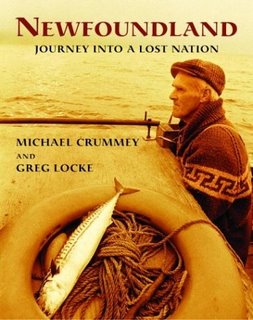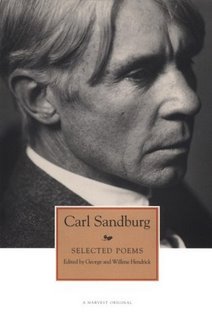
Newfoundland: Journey into a Lost Nation, is not a pretty picture book meant to entice those from “away” to spend their tourist dollars on the “Rock”. Rather, Greg Locke’s collection is that of a professional photographer who has travelled the world as a photo-journalist and is now turning the camera on himself—so to speak. Where most would frame the picture to focus on the picturesque and avoid the eyesores; this book makes them front and centre. The last crumbling shack in an Outport depopulated by the policies of Joey Smallwood; children playing in the loft of a stage-euphemistically called a day-care; fisherman struggling to rescue their nets from a berg. The text which accompanies these pictures by Michael Crummey mirrors in words the pictures they describe. I might have preferred that they be incorporated more fully into the body of the work rather than appear as a lump at the beginning but together words and text present a lament for a way of life that is gone and will never return. It may have been hard-scrabble but it had dignity that was passed from generation to generation. These two are among the generation that were forced to leave the “Rock” to make a living and managed to make their way home again. Something about an island home stays in one’s soul even if one lives out one’s life “away”. This book attempts to illustrate the point and tug at the heart strings of all their fellow Newfies. It’s a sad world in which it’s illegal to row out and jig for your supper. There are no Newfie Jokes here.

